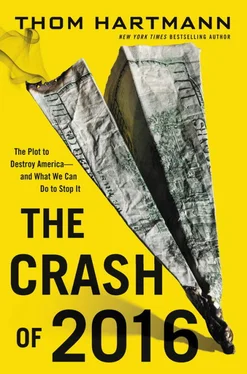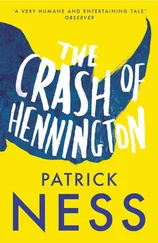Section 2
[ Money is not speech and can be regulated ]
Federal, State and local government shall regulate, limit, or prohibit contributions and expenditures, including a candidate’s own contributions and expenditures, for the purpose of influencing in any way the election of any candidate for public office or any ballot measure.
Federal, State and local government shall require that any permissible contributions and expenditures be publicly disclosed.
The judiciary shall not construe the spending of money to influence elections to be speech under the First Amendment.
Section 3
Nothing contained in this amendment shall be construed to abridge the freedom of the press.
Section 4
Congress shall have power to implement this article by appropriate legislation.
Other variations on this amendment, some simpler and some more complex, can be found at MoveToAmend.org. The elegance of explicitly denying constitutional rights to anything except “living human beings” is that it will not only roll back Citizens United but it will also allow future legislatures to challenge corporate claims to “rights” of privacy (Fourth Amendment), protection from self-incrimination (Fifth Amendment), and the power to force themselves on communities that don’t want them because to do otherwise is “discrimination” (Fourteenth Amendment).
We must be very careful that any amendment put forth isn’t just limited to giving Congress the power to regulate campaign spending; to do so would leave a wide swath of other Bill of Rights powers in the hands of corporations. Instead, an amendment must explicitly overturn the headnote to the Santa Clara County 1886 decision that asserted corporations are the same as natural persons in terms of constitutional protections.
By doing this, we can begin the transition back from a Royalist state to the constitutionally limited representative democratic republic our Founders envisioned.
Even before the Citizens United case blew open the doors to a corporate takeover of American politics, the corrosive influence of corporations having “rights” was already evident. After the crash, “we the people” must once again assert our right to do what’s best for the common good and, through the mechanism of a constitutional amendment, relegate corporations to their rightful place—as legal fictions and not natural persons.
To ensure that the Supreme Court is never able to overturn the will of organized people again, we must also reconsider the role of the high court itself after the Crash of 2016.
Ever since taking on the power to strike down laws passed by Congress and signed by the president, the Supreme Court has been behind a series of radical decisions that have provoked previous Great Crashes and wars.
On June 16, 1858, Abraham Lincoln—shortly after he’d been nominated by the newly minted Republican Party as their candidate for the US Senate—denounced the Supreme Court’s decision in his famous “House Divided” speech in Springfield, Illinois. “We shall lie down pleasantly dreaming that the people of Missouri are on the verge of making their State free,” he said, “and we shall awake to the reality instead, that the Supreme Court has made Illinois a slave State.”
Lincoln went on to lose the Senate campaign to Stephen Douglas, but after the loss his party nominated him for president, and he won that election in November 1860. During the four months between then and March 4, 1861, when he was sworn into office, seven southern states had organized and announced their intention to secede from the United States and form their own nation, the Confederate States of America. Lame-duck president James Buchanan declared their secession illegal, but could or would do little else. Lincoln was alarmed, but he was not yet president.
On the day of his inauguration, Monday, March 4, 1861, Lincoln spoke explicitly and gravely to the seven secessionist states, and to another eight that were considering joining them. He didn’t want a war, and was willing to give in to the slave owners to avoid it.
“I have no purpose, directly or indirectly, to interfere with the institution of slavery in the States where it exists,” Lincoln said in his inaugural address. “I believe I have no lawful right to do so, and I have no inclination to do so.”
But knowing, also, that if the Supreme Court had not ruled the way they had in Dred Scott v. Sandford , the drums of war probably wouldn’t be beating, Lincoln let his inner lawyer loose and said right out loud:
[T]he candid citizen must confess that if the policy of the Government upon vital questions affecting the whole people is to be irrevocably fixed by decisions of the Supreme Court, the instant they are made in ordinary litigation between parties in personal actions the people will have ceased to be their own rulers, having to that extent practically resigned their Government into the hands of that eminent tribunal.
Although he’d sugar-coated the statement, there it was.
Lincoln knew that the entire concept that the Supreme Court could strike down laws passed by Congress and signed by the president was not one of the powers given to it by the Constitution.
The Constitution, in Section 2 of Article 3, which establishes the judiciary branch, gives Congress the power to define and limit what the Supreme Court can and can’t do.
Here’s part of the exact language: “[T]he Supreme Court shall have appellate jurisdiction both as to law and fact, with such exceptions, and under such regulations as the Congress shall make.”
The Congress can control the terms and conditions under which the Supreme Court can rule? Yes, according to the Constitution.
The framers of the Constitution wanted the greatest power to be closest to “We the People”—and that’s why the entire House of Representatives and a third of the Senate is up for election every two years. Congress is the body in our representative democratic republic that is closest to the people, so that’s where they wanted most of the power. That’s also why Congress is defined in Article 1 of the Constitution, establishing it as the first among equals.
As Thomas Jefferson wrote in an 1820 letter to William Charles Jarvis, who thought Supreme Court justices should have the power to strike down laws: “You seem to consider the judges the ultimate arbiters of all constitutional questions; a very dangerous doctrine indeed, and one which would place us under the despotism of an oligarchy… The Constitution has erected no such single tribunal… I know of no safe depository of the ultimate powers of the society, but the people themselves.”
Nowhere in the Constitution does it say that the Supreme Court can strike down laws passed by Congress and signed by the president. Nowhere.
And for the first fourteen years of our republic, the court, under Chief Justice John Jay (who coauthored The Federalist Papers with Hamilton and Madison, wrote New York State’s constitution, and was a president of the Continental Congress), Chief Justice John Rutledge (who helped write the Constitution and signed it), and Chief Justice Oliver Ellsworth (who helped write the Constitution and signed it), never even considered the idea.
When he and James Madison were selling the Constitution in 1878, Alexander Hamilton wrote a newspaper article, now known as “Federalist No. 78,” stating:
[T]he judiciary, from the nature of its functions, will always be the least dangerous to the political rights of the Constitution; because it will be least in a capacity to annoy or injure them. The Executive not only dispenses the honors, but holds the sword of the community. The legislature not only commands the purse, but prescribes the rules by which the duties and rights of every citizen are to be regulated. The judiciary, on the contrary, has no influence over either the sword or the purse; no direction either of the strength or of the wealth of the society; and can take no active resolution whatever… It proves incontestably, that the judiciary is beyond comparison the weakest of the three departments of power; that it can never attack with success either of the other two.
Читать дальше












